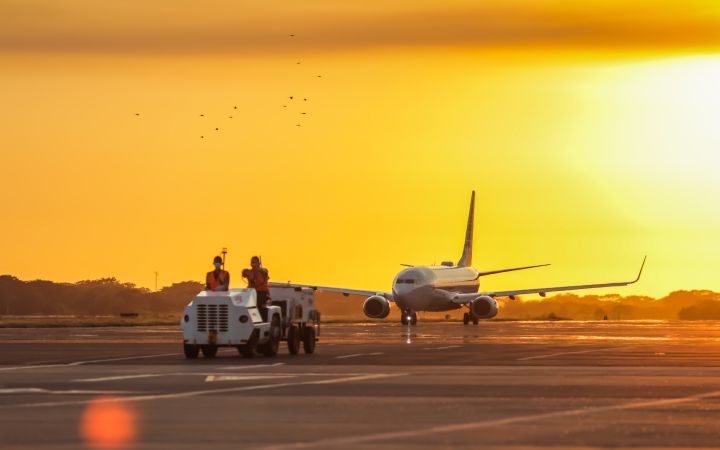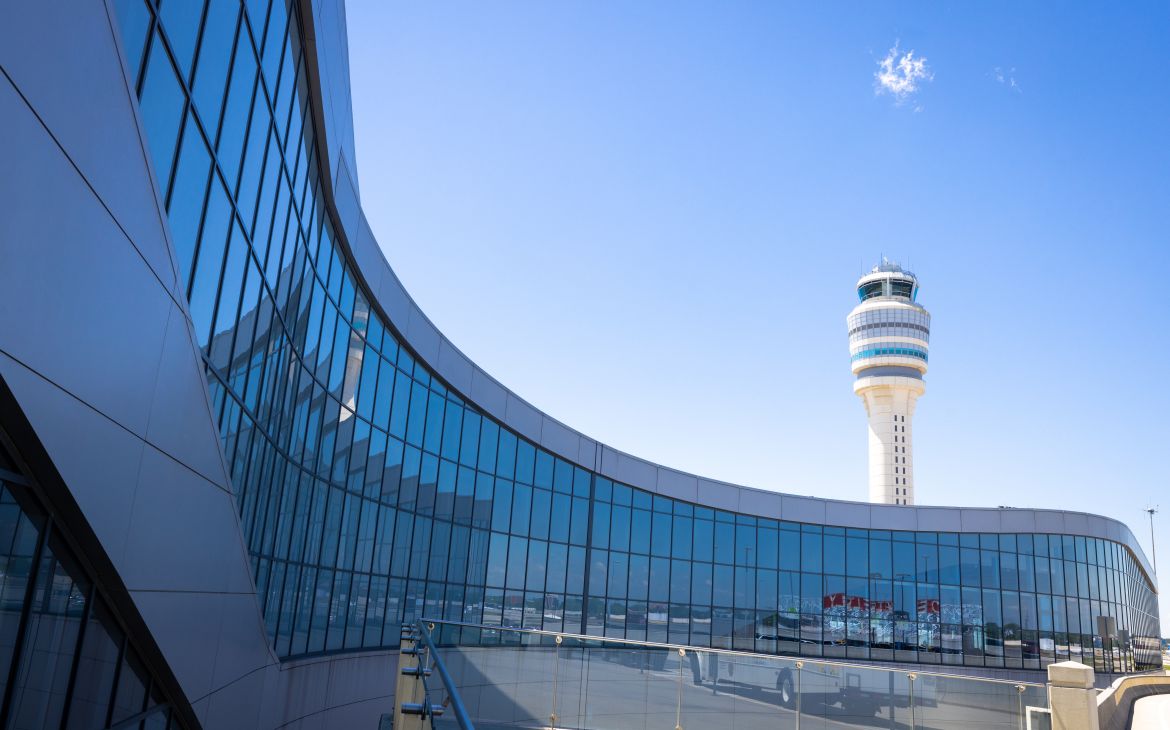Airports are critical economic growth engines at national, regional, and local levels. The quality of services and competitiveness of airports have a strong impact on surrounding regional economies. Enhancing connectivity, service quality, and competitiveness can create jobs and spur economic growth in the surrounding region. Success in positioning airports as optimal gateways, air cargo hubs, and business zones hinges on the cooperation and coordination between central and local governments, airport management, and the business community.
Airports also play a crucial role in sustainability. They are implementing innovative strategies in energy efficiency, waste management, and more to achieve net zero carbon. Integrating sustainability into airport operations not only strengthens their economic position but also increases social benefits while reducing environmental impacts. Airlines are also committed to achieving net zero carbon by 2050.
The Airports for Economic Development Training Programme offers a platform for dialogue on key issues related to airports, aviation, and economic and sustainable development. The programme provides training seminars that empower aviation sector stakeholders with tools and knowledge to leverage airport infrastructure for long-term economic growth.
Key benefits
Participants will benefit from learning and exchanging best practices on the following topics:
- Economic development: Strategies tailored for airports to stimulate local economies through job creation, tourism, and infrastructure development.
- Airport competitiveness: Understanding factors that contribute to competitiveness to enhance attractiveness to airlines, passengers, and cargo operators.
- Technological innovations: Insights into the latest advancements like automation, data analytics, and biometrics to improve efficiency, security, and passenger experience.
- Safety management systems: Developing and implementing systems to ensure compliance and mitigate risks.
- Security preparedness: Developing comprehensive security plans and responding effectively to threats.
- Terminal and airside operations: Best practices to streamline processes, reduce congestion, and enhance operational performance.
- Non-aeronautical revenue strategies: Exploring alternative revenue streams beyond traditional sources to increase financial sustainability.
- Cargo logistics: Optimizing freight handling processes and improving supply chain efficiency.
- Airport service quality: Strategies to enhance service quality, customer service, and passenger satisfaction.
- Environmental sustainability: Implementing initiatives to reduce environmental impact, such as energy efficiency measures, waste reduction, and carbon offset programs.
- Preparedness for mega events: Developing plans to manage large-scale gatherings and maintaining a positive airport image.
- Disaster preparedness and service recovery: Skills in responding effectively to disruptions, minimizing downtime, and ensuring continuity of services.
- AI and Cybersecurity: Leveraging AI for threat detection, digital safety, and resilient airport cybersecurity systems.
- Behavioural Science & Social AI: Applying behavioural insights and AI to improve crisis response, decision-making, and passenger management.
Program Delivery
The programme will deliver four intensive two-day training workshops between March 2025 and June 2025 in Africa, North America, Asia, and Latin America. These workshops will cover topics relevant to airport operations and economic development through interactive discussions and group assignments. Participants will gain practical knowledge and skills, enabling them to act as change agents in their respective domains.
Locations
- San Salvador, El Salvador: Comalapa International Airport is rapidly becoming a logistics and passenger hub for Central America. Its modernization efforts focus on scaling infrastructure in an emerging economy context. San Salvador offers unique insights into airport growth under constrained resources, government-led development initiatives, and integration of aviation into national economic strategies.
- Atlanta, USA: Hartsfield-Jackson Atlanta International Airport is a global benchmark for airport efficiency and connectivity, serving as the world’s busiest by passenger numbers. Atlanta excels in hub-and-spoke model management, public-private partnerships, and high-volume operations. Its leadership in green airport certification and digital transformation makes it a key learning site for operational excellence.
- Rabat, Morocco: Rabat represents Morocco’s strategic aviation development at the crossroads of Africa, Europe, and the Arab world. Its growing infrastructure supports regional integration and South-South cooperation. As a potential 2030 World Cup host, Morocco’s preparations reveal strategies for event-ready aviation infrastructure, intermodal transport planning, and cross-continental connectivity.
- Singapore: Singapore’s Changi Airport is globally recognized for its innovation in passenger experience, automation, and sustainability. As a state with limited land and airspace, Singapore offers lessons in maximizing airport efficiency, airspace optimization, and urban-integrated aviation planning. It’s a pioneer in aviation sector resilience and future-oriented governance.
- Merida, Mexico: Merida’s regional airport plays a vital role in connecting remote areas with national and international markets. Located in a climate-sensitive and tourism-dependent region, Merida specializes in crisis-resilient airport operations, post-disaster recovery planning, and aviation’s role in regional tourism ecosystems.
- Santo Domingo, Dominican Republic: Las Américas International Airport supports the Caribbean’s dual needs of tourism and trade. With frequent exposure to hurricanes, it is a leader in disaster response coordination, aviation-maritime integration, and transport logistics under extreme weather conditions. It serves as a blueprint for climate adaptation in airports.
- Miami, USA: Miami International Airport operates as a gateway for Latin American and Caribbean cargo, with a specialization in cold chain logistics and pharmaceutical freight. Its multicultural workforce and experience as a regional FEMA emergency hub position it uniquely in coordinated disaster response and aviation’s role in humanitarian logistics.
Workshops Schedule
Mérida (Latin America): March 23–24, 2026
Topics: Hurricane Preparedness
Atlanta, USA (Global): April 22–23, 2026
Topics: Preparedness for Mega Events
Santo Domingo (Caribbean): June 2026
Topics: Regional Airport Development
Lima, Peru (Latin America): September 21–25, 2026
Topics: Future-Proofing Airport Development
Saudi Arabia (MENA): October 2026
Topics: Airport Development and Regional Cooperation





